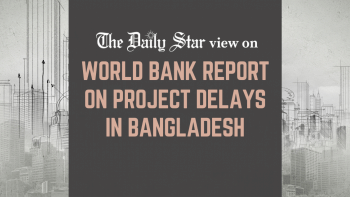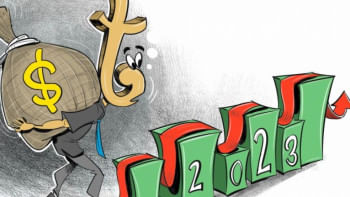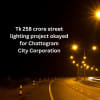Government should rethink its spending priorities

We fail to understand the logic behind the government considering undertaking seven low-priority projects worth Tk 21,765 crore at a time of great economic challenges. The government had earlier suspended such low-priority projects at the beginning of the fiscal year in 2022 as part of its austerity measures. Evidently, the conditions and challenges that led to the suspension then haven't changed. Why then has the government decided to change its policy regarding spending on less urgent projects?
Apparently, the government's logic for taking up these projects, which concern propping up the rural economy, is that they would provide cash in hand for the rural people who are grappling with high inflation. The projects involve building roads, culverts and drainage systems, as well as expanding people's scope of employment. All this sounds good on paper. For example, one of the projects concerns extending 1,149 km of roads to improve connectivity so that farmers can get a fair price for their produce. The problem, however, is with the timing. Is now the right time for the government to spend on such projects?
As the government is planning a big budgetary deficit, which will be covered through massive borrowing, we can safely assume that this could further fuel inflation. Increased inflationary pressure would end up hurting the common people, including those living in rural areas, by lowering their purchasing power. So, that will basically bring them back to square one. Based on that logic, it seems the government's drive for said projects is grounded less on economic rationales, and more on political factors. It is possible that the government, by increasing expenditure which could make people happy in the short term, is trying to win brownie points among rural voters during an election year. But that does not mean it's a prudent decision for the economy in the long run. And as past experience shows, such projects could be poorly planned and end up losing steam once the election is over.
Given the severity of the economic challenges that the country and its people are currently facing, the government should refrain from making such rash expenditure decisions and focus on better management of its finances/resources. Instead of increasing spending on low-priority projects, it should prioritise increasing spending on social safety net programmes which can give people who are suffering the most some relief from the ongoing inflationary pressure.


 For all latest news, follow The Daily Star's Google News channel.
For all latest news, follow The Daily Star's Google News channel. 










Comments